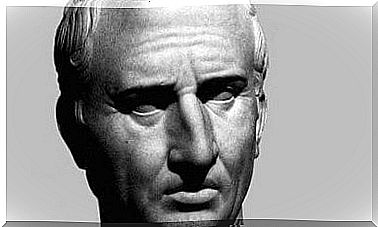The Theory Of Naive Epistemology: Where Does Knowledge Come From?

Where does the knowledge come from? How do we know if something is right or wrong? Difficult to answer these questions. Especially now that new technologies are flooding us with so much information. In order to understand how we process this information, the theory of naive epistemology provides us with an explanatory framework for how we choose the information that will then become knowledge.
First of all, it is necessary to understand that information is data, with some elaboration. However, it does not necessarily constitute knowledge. This data will become knowledge when we consider it to be true. In addition, for us to accept that information is true, it does not have to be.
For example, a person may hear about the little mouse passing by when a child loses its baby teeth. After listening to this information, the person will decide whether it is true or false.
If she accepts the existence of the little mouse who exchanges baby teeth for money, then she will have produced knowledge. If, on the other hand, she does not believe this information, it will remain just information, which is moreover false.

Empirical or naive knowledge
The acquisition of knowledge is done through perception by the senses. Seeing is believing. If we see the little mouse or if we hear it, then we will generate knowledge about its existence.
Reasoning also plays a role. If we hear a noise and think that it could be the little mouse, we are going to wonder if that noise really indicates that it exists or not.
There are other methods of generating knowledge. The most useful method to date is the scientific method. Science, by using hypotheses that it tries to refute, is also capable of generating knowledge.
For example, the drugs we consume have been the subject of a series of experiments which have shown that they are really effective. However, this is not the case with alternative therapies. Whether we believe these therapies are effective or not, whether they become knowledge or not, is up to us.
What is epistemology?
As we have seen, there are different ways of producing knowledge. The branch of science that studies knowledge is called epistemology.
Epistemology studies the criteria by which something should be considered true. As explained above, there are several ways to validate a hypothesis. It goes from the experience of our senses to the scientific method. There are therefore different types of epistemological knowledge.
In this article, we’ll focus on one type in particular: naive epistemology. Naive epistemology is a process by which people acquire knowledge in a subjective way. This means that this belief is ours. Whether it is true or not and whether others agree with us or not.

Naive epistemology
Assuming that knowledge is what we know (or think we know), the theory of naive epistemology proposes that knowledge arises from the creation of hypotheses. We thus generate different hypotheses and assess the relevance of each of them on the basis of the evidence available to us.
So if we try a food that we have never eaten before and the next day we get sick, then we can make different hypotheses. For example, that the food caused the disease or that the disease has nothing to do with the food and is therefore due to another cause.
Although these two hypotheses are not the only ones possible, they illustrate well the laws which are produced from these hypotheses. In any case, we will have some uncertainty about the cause of the disease. To remove this uncertainty, we will have to choose one of the two hypotheses. This will lead us to form an acquaintance.
In this situation, two options are available to us. Either we remain in the dark about the cause of the disease, or we accept one of the assumptions and generate knowledge about the cause of the disease. In other words, we’re either going to avoid cognitive closure or seek it out.
The choice of one or the other will depend on the benefits and costs of acquiring this knowledge. So, while knowing the cause of the disease is very important, we are more likely to accept the first hypothesis.










